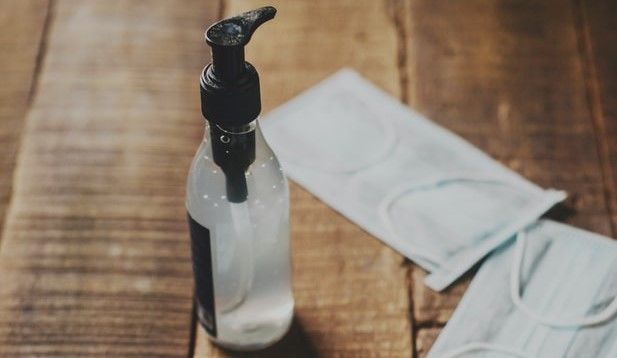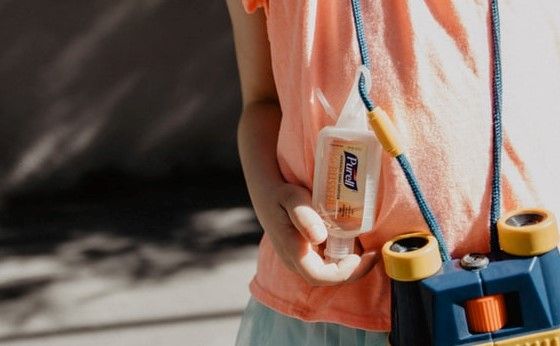The European Union's anti-fraud body has seized a major shipment of dangerous hand sanitiser. The move will stop the poisonous product from entering the market where it could have made people sick, with symptoms as extreme as blindness, coma, and death.
The break into the illegal operation began when Danish authorities found 6,000 litres of unsafe hand sanitiser that had been imported from Turkey. This led them to notify European Anti-Fraud Office (OLAF) to be on the look out for further suspicious shipments.

By the end of September, a dubious consignment of hand sanitiser being sent to Ireland from Turkey was being tracked. When it arrived in Dublin, officials discovered almost 140,000 litres of dangerous hand sanitiser. The cleansing product was seized due to what an OLAF spokesperson described as “unacceptably high levels of methanol”.
Furthermore, the ABC news network also reports that the, “investigation led to the discovery of other stocks of the same sanitizer, while a second shipment was also contaminated.” Adding that, “The investigation later established that several companies based in the EU had ordered hand sanitizers from the same Turkish manufacturer operating under various names.”
“Since the onset of the pandemic, OLAF has been active in fighting illicit material related to Covid-19 such as counterfeit and substandard face masks, rapid tests, hand sanitizers,” said OLAF director-general Ville Itälä. “These products should protect people, not harm them. OLAF investigations have detected over 900 companies involved so far, and the list is growing.”

The use of methanol (also called wood alcohol) as an ingredient in hand sanitisers and disinfectants is banned in the EU, US, and most other countries.
This is because methanol can have a terrible effect on people who come into contact with it, not only by drinking it, but also by absorbing it through the skin or inhaling its fumes.
This can happen in as little as one hour after exposure, yet symptoms may not become apparent for some time or even days later.
As the American government’s Center for Disease Control and Prevention (CDC) advises, “Initial adverse health effects due to methanol poisoning include drowsiness, a reduced level of consciousness (CNS depression), confusion, headache, dizziness, and the inability to coordinate muscle movement (ataxia). Other adverse health effects may include nausea, vomiting (emesis), and heart and respiratory (cardiopulmonary) failure.”
Eye exposure can cause irritation, redness, and pain. While other general side effects include kidney failure, hallucinations, blurred vision, amnesia, liver and pancreas problems, blindness, coma, seizures, and death.
The reason for methanol’s toxicity is due to its metabolic products which cause an accumulation of acid in the blood (metabolic acidosis).
While most countries have banned the use of methanol for hand sanitiser and gels, its use has increased rapidly, as the coronavirus has spread. Cheaper products, from unscrupulous suppliers, are now damaging people’s health.

In America, the inclusion of methanol in hand sanitiser has already been fatal. As NBC news reports, “The coronavirus pandemic has triggered a huge spike in demand for hand sanitizer, and with it, a shortage of ethanol, which is typically used as the active ingredient in hand sanitizers. The FDA has counted 17 deaths from exposure to methanol-tainted sanitizer this year, and spokesman Jeremy Kahn says the agency has received an additional 2,000 reports of exposure or injuries.”
Instead of methanol, the World Health Organisation recommends using an alcohol-based hand sanitiser. As the consumer watchdog Which?, explains, “The alcohol found in hand sanitisers is usually ethanol, isopropanol or a mixture of the two. Alcohol destroys viruses and bacteria by dissolving the outer layer which inactivates them.”
Moreover, the WHO advises that people only use hand sanitiser with at least 60% alcohol by volume. Products containing less than this level may kill some of the pathogens on the skin, but some will survive, multiply, and potentially infect you or your family.
If you are unsure if your hand sanitiser is safe and also strong enough to kill the coronavirus, then turn to a trusted supplier.
AG PROTECT (who sponsor this website) is a Prague-based business offering a wide range of hand gels, sanitisers, and disinfecting products, all of which meet strict EU standards. To find out more, visit AG PROTECT.
Photo credit: Kelly Sikkema, Anshu A, Kelly Sikkema on Unsplash, & Tim Foster